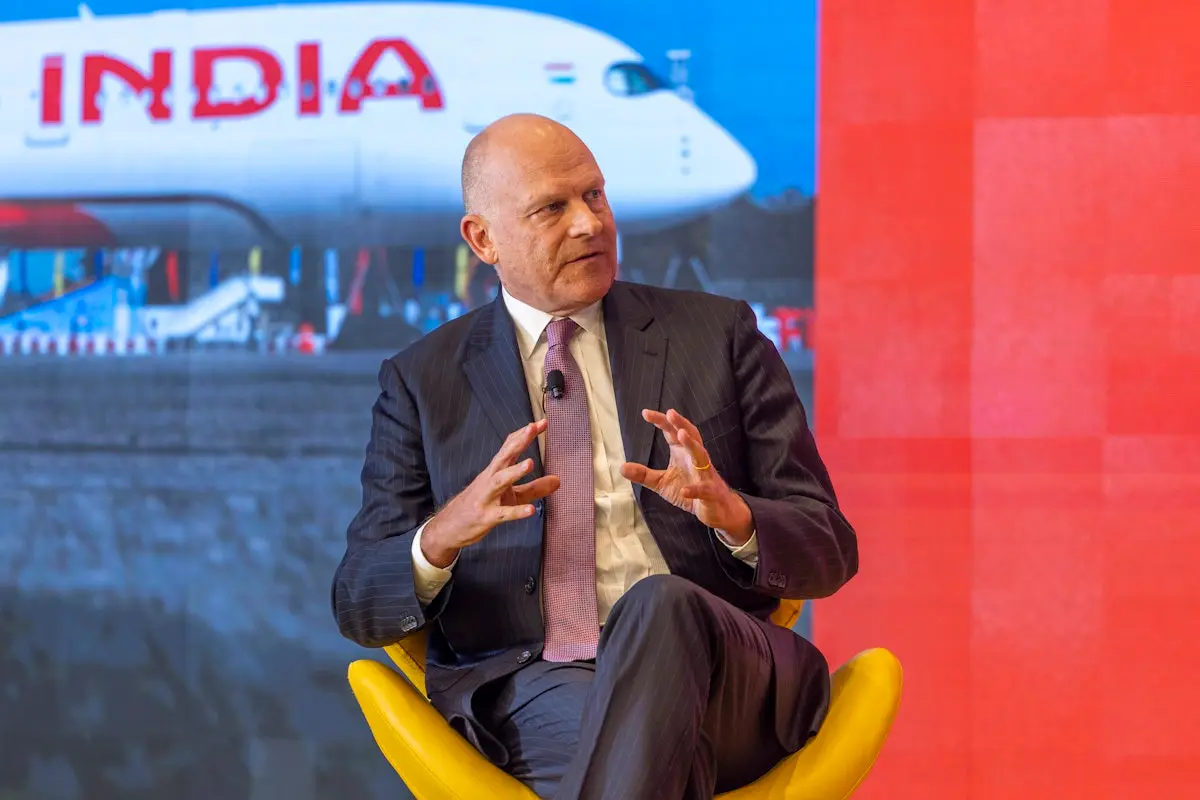Wyndham Gains From Infrastructure Boom With Record Pipeline

Skift Take
Wyndham Hotels & Resorts is capitalizing on ramped-up construction of data centers and other infrastructure projects across the U.S. to support a boom in artificial intelligence and other technologies.
The world’s largest hotel franchisor said Thursday that it ended 2024 with a development pipeline of 252,000 rooms, a company record. The expansion of major infrastructure projects boosted demand for its properties, especially its economy and midscale extended-stay brands.
The company’s growth strategy has had some early wins, with Wyndham opening 68,700 new rooms last year—its highest-ever annual total—including nearly 28,000 U.S. properties.
“The demand for workforce lodging has never been stronger,” said Geoff Ballotti, Wyndham’s president and CEO. “With the record number of infrastructure projects underway, we’re seeing heightened interest from developers eager to join our system, particularly in high-growth corridors.”
The growth was fueled in part by increasing corporate investments in infrastructure, which drew an influx of contractors, engineers, and other workers in need of extended stays at budget-friendly hotels, a sweet spot for Wyndham’s portfolio.
Wyndham’s pipeline continues to expand at a steady clip, growing 5% year-over-year, with 7% U.S. growth. The company is also increasing its foothold in international markets, with nearly 60% of its pipeline outside the U.S., including major expansions in China, Latin America, Europe, and the Middle East.
Strategic Pruning: Making Room for Higher-Value Hotels
Wyndham executives said they are carefully managing the composition of their hotel portfolio. The company has strategically allowed underperforming properties to exit while replacing them with higher-revenue hotels.
“Our focus remains on growing the right hotels in the right markets,” Ballotti said. “We’re not just adding more properties—we’re ensuring that the ones we bring in contribute higher franchise fees and greater long-term value.”
Last year, approximately 37,500 rooms left Wyndham’s system. The hotels added in their place carried an average FeePAR (fees per available room) premium of 36% domestically and 27% internationally compared to those that exited.
This disciplined approach aligns with Wyndham’s broader push to emphasize higher-fee brands and premium midscale offerings, which have been outperforming economy-tier hotels in key markets and that have higher retention rates on average. The company’s flagship brands, including La Quinta, Microtel, and Trademark Collection, have played a crucial role in this transition.
Current franchisees signaled they're happy with being part of the Wyndham group by continuing to sign up to renew their contracts at a 95.7% level, a group record.
Debit Card Launch
Wyndham has agreed to launch a debit card that it calls the first of its kind in the hotel sector. While co-branded credit cards have been around for decades, debit cards are a novelty.
Ballotti said that, as Wyndham attracts more Gen Y and Z guests, they find that these guests more commonly use digital wallets like Apple Pay and Google Pay for payment. Younger travelers also more commonly fund these accounts via debit cards.
"Why we're doing it [adding the debit card] is to provide an opportunity for credit card ineligible folks to earn Wyndham points not only for hotel stays but also for everyday purchases," Ballotti said.
As for its traditional co-branded credit card, Wyndham has renegotiated its longstanding deal with issuer Barclays to earn higher fees.
"We do expect ancillary revenue growth to be in the low teens range in 2025, up from the 6% we saw this year," said Michele Allen, chief financial officer. "That implies about $35 million of incremental revenue across all the ancillary revenue line items and almost double our prior expectation. And that's, in part, due to the early renewal of our credit card [contract]."
Wyndham's Outlook for 2025
Wyndham has set an ambitious target for 2025, forecasting room growth between 3.6% and 4.6%. The company expects global revenue per available room (RevPAR) to increase 2% to 3%, buoyed by continued demand from leisure travelers and infrastructure-related bookings.
"The initial 2025 guide seems reasonable to us, especially for a company with very limited visibility in hotel room bookings," wrote analysts Patrick Scholes and Gregory Miller of Truist Securities in a flash report. Unlike its peer companies, Wyndham doesn't get many advance group bookings or contracts and mainly depends on refundable reservations, which are prone to cancellations if economic headwinds emerge.
With about 78% of its pipeline comprised of new construction projects—over a third of which have already broken ground—Wyndham is positioned for sustained momentum, executives said.
“The fundamentals of our business remain incredibly strong,” Ballotti said. “We see 2025 as another year of robust expansion, as our franchisees continue to invest in our brands and travelers increasingly seek value-driven accommodations.”
Accommodations Sector Stock Index Performance Year-to-Date
What am I looking at? The performance of hotels and short-term rental sector stocks within the ST200. The index includes companies publicly traded across global markets, including international and regional hotel brands, hotel REITs, hotel management companies, alternative accommodations, and timeshares.
The Skift Travel 200 (ST200) combines the financial performance of nearly 200 travel companies worth more than a trillion dollars into a single number. See more hotels and short-term rental financial sector performance.





